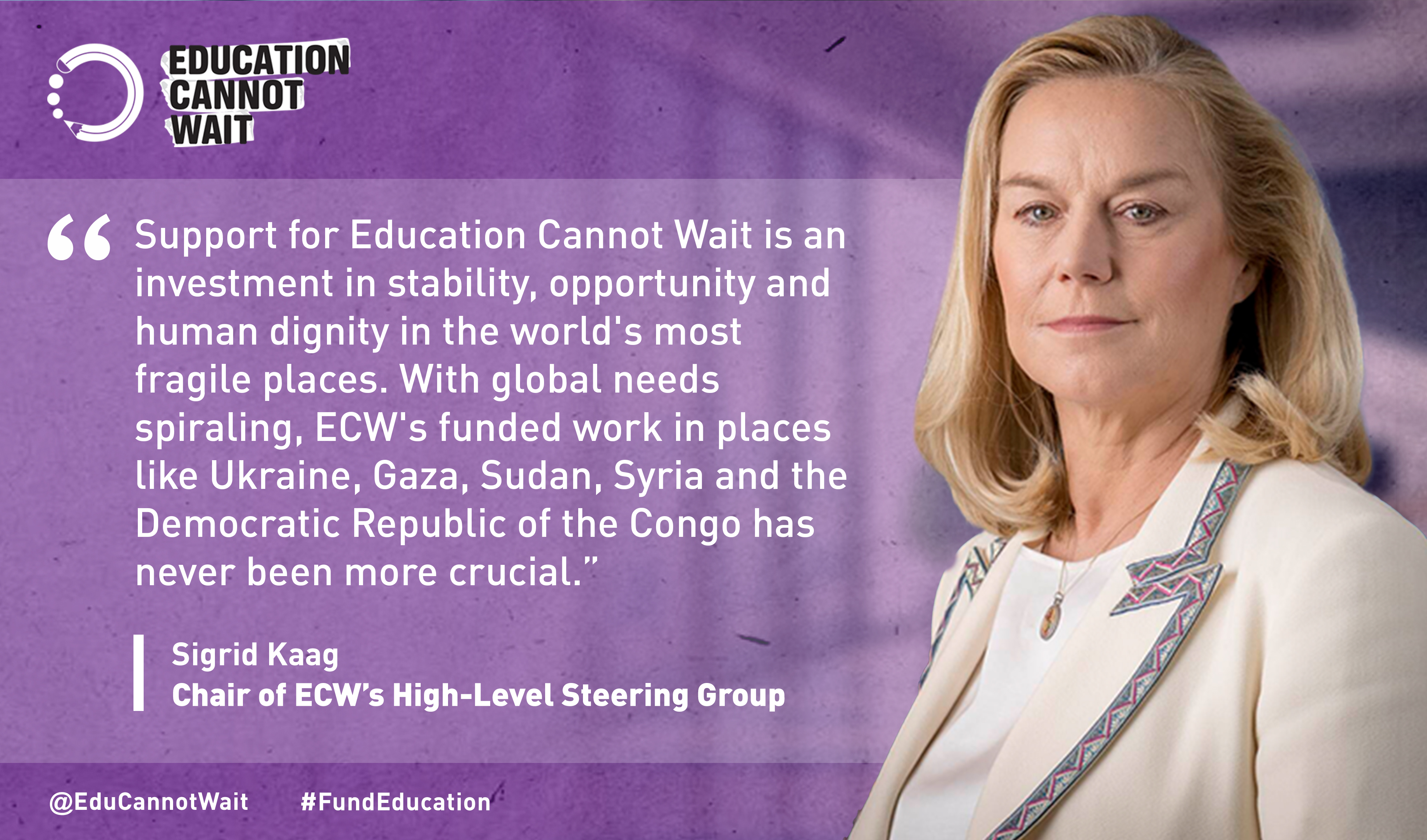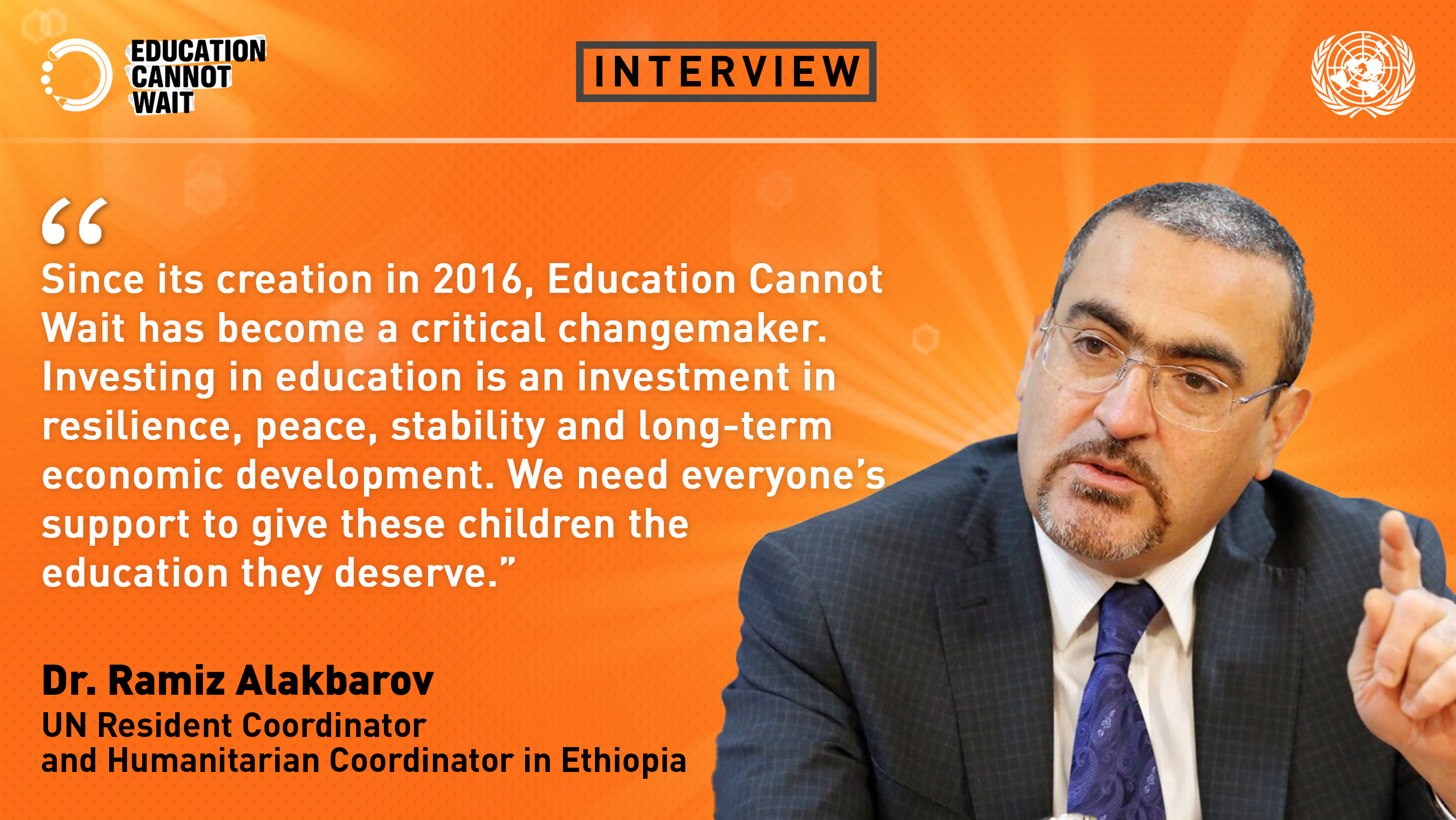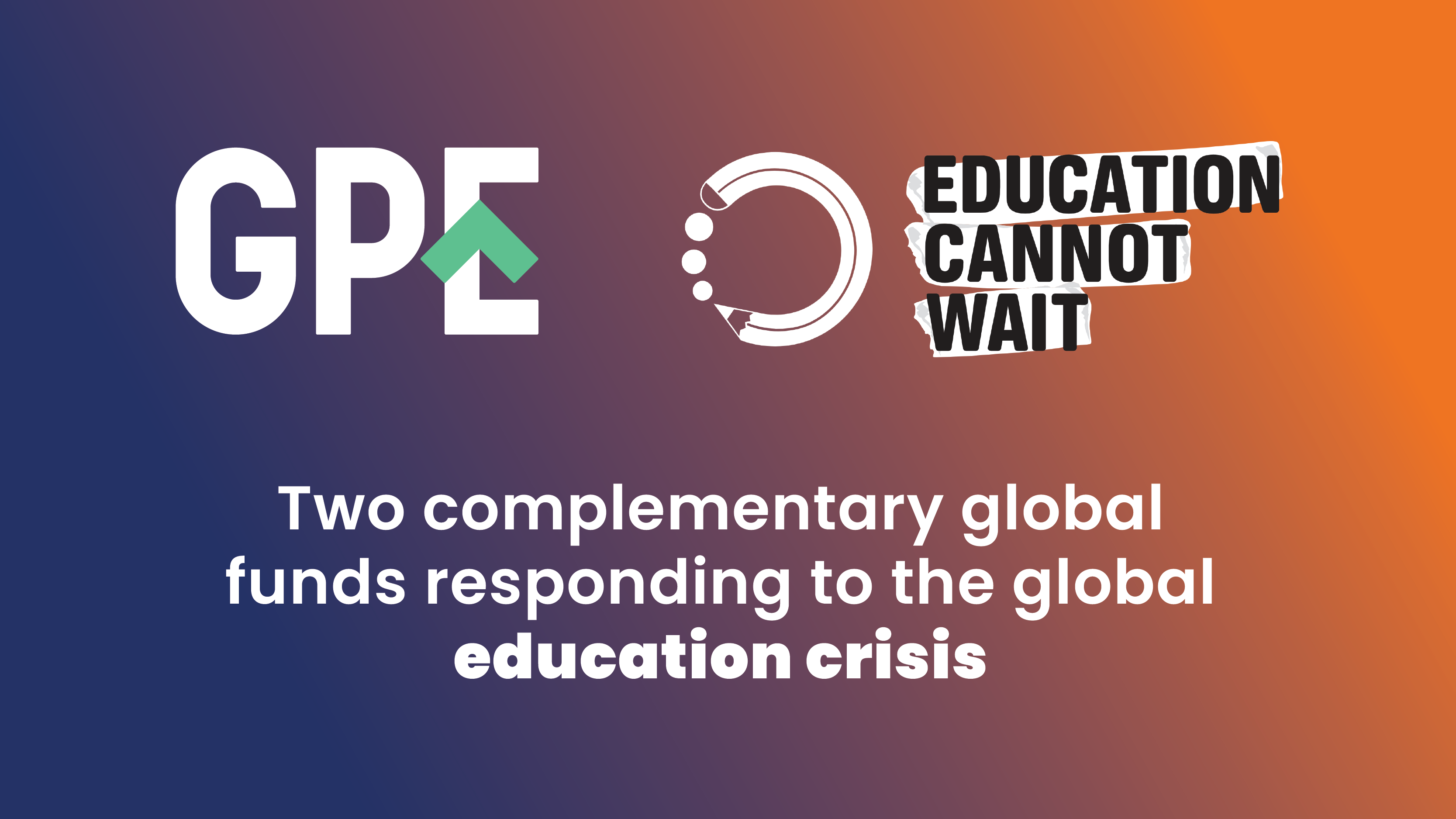Every Action Counts – World Refugee Day 2020
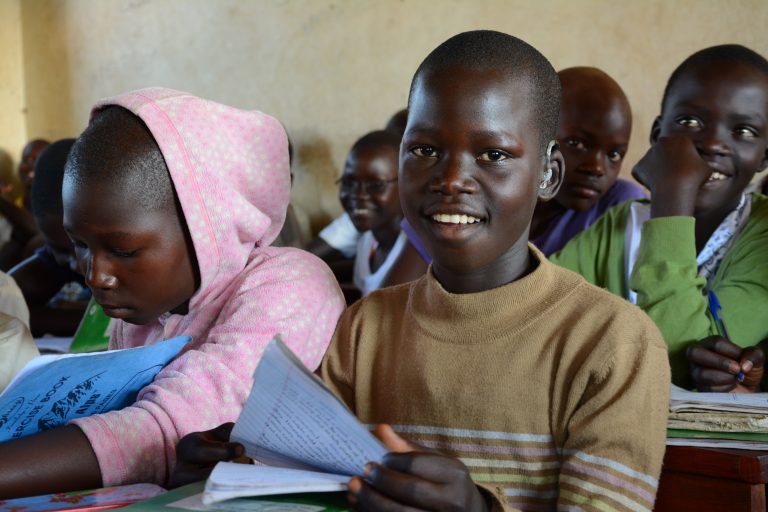
Education Cannot Wait investments are reaching refugee children and youth in crisis-affected countries around the world, providing them with the hope, opportunity and protection of an education. In places like Uganda, this means disabled girls, like Sunday Harriet, are regaining access to education, allowing them to learn, grow and thrive.
Everyone can make a difference and every action counts! This is the rallying cry of 2020’s World Refugee Day, led by the UN Refugee Agency (UNHCR), and supported by stakeholders and partner across the world, including Education Cannot Wait (ECW), the global fund for education in emergencies and protracted crises.
For refugee students living in the Palake Refugee Camp in Northern Uganda, like Sunday Harriet, even the smallest of actions can make a big difference.
As an infant, Sunday suffered a serious infection in both her ears. Now 11 years old and in primary school, Sunday’s learning ability is impaired because her hearing is now limited. “I used to be picked by teachers and brought to the front of the classroom because I did not hear well,” she said.
Sunday’s challenges are complex. Because she has a disability, and because she was forced to flee her home, her chances of receiving quality education were limited.
The spread of COVID-19 now exacerbates the hardships faced by refugee children like Sunday. Refugee girls are especially at risk, often pressured by economic hardship, culture and tradition to stay home and work, or vulnerable to sexual exploitation and abuse. According to the Malala Fund, approximately 10 million more secondary-school-aged girls could be out of school as a result of the pandemic, putting them at even higher risk.
To support Sunday, and other students like her, Education Cannot Wait provides funding for the Education Response Plan for Refugees and Host Communities in Uganda and through a fast-acting First Emergency Response to the COVID-19 pandemic, announced in early April.
In Uganda, ECW’s education in emergency COVID-19 response includes $1 million in funding to Save the Children and UNHCR, which focuses on ensuring continuous access to education, including: distance, online and radio learning; information campaigns, risk communications and community engagement in local languages, including psychosocial and mental health support; and, water and sanitation facility upgrades in schools and learning centers as a first line of defense.
Recent reports indicate that 60,000 refugee and Ugandan children are benefiting from extended learning and mental health support during the lockdown through ECW’s first emergency response.
These interconnected programmes were developed through a collaborative process, including the Government of Uganda, donors, NGOs, UN agencies, the education in emergencies working group and other key stakeholders.
To get Sunday back to learning, the AVSI Foundation screened her using a contact disability assessment tool, which helps detect children and youth with impairments. Having clearly qualified for assistance, she was referred for further clinical assessment from an ear, nose and throat specialist in Gulu, in northern Uganda, who recommended she be fitted with hearing aids.
The assistance has been life changing! Having eventually received her digital hearing aids from Kampala Audiology and Speech Centre, Sunday can now properly engage in classroom exercises and listen clearly to what her teachers are saying.
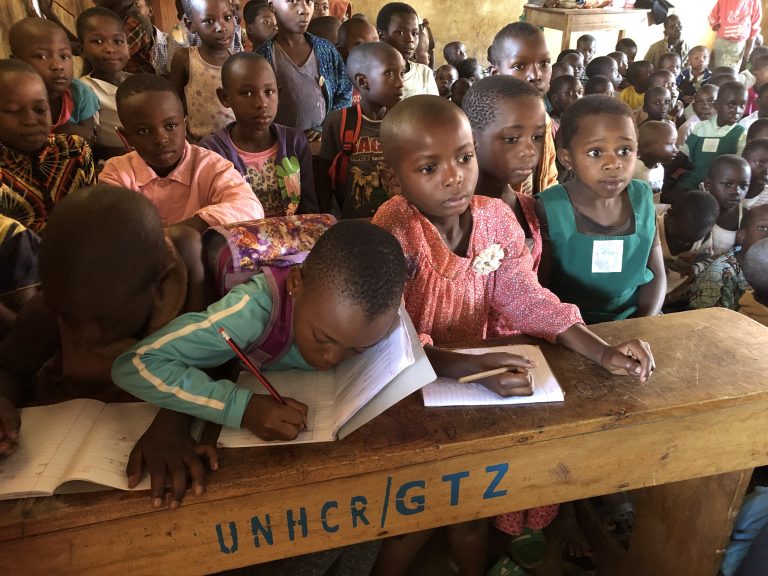
Impact
According to ECW’s upcoming Annual Report, Uganda is host to the third largest refugee community in the world as more than 1.3 million refugees have crossed its borders from Burundi, South Sudan, and the Democratic Republic of the Congo. More than 60 per cent of the refugees are under the age of 18; girls and women make up a total of 51 percent of the total displaced population.
The Education Response Plan for Refugees and Host Communities in Uganda, was launched in September 2018 and aims to improve access and delivery of quality education for refugees and host communities affected areas in the border regions. The Education Response Plan is based on the ‘Comprehensive Refugee Response Framework’ (CRRF) and these work together to make the education system more inclusive for refugees and other vulnerable groups, such as children with disabilities, girls and child mothers.
In 2019, the Uganda Education Consortium, working under the national emergency response plan, delivered a comprehensive package of services that include the distribution of scholastic materials to 150,941 children (48 per cent girls), the construction of more than 150 new classrooms, the recruitment of 640 teachers, and the establishment of referral pathways alongside accelerated learning programmes.
This multi-pronged approach helped improve the gross enrolment ratio for refugee children from 53 per cent in 2017 to 75 per cent by the end of 2019.
Taken together with other actions, this provides a strong enabling environment for the government of Uganda to roll out effective education in emergencies relief to the COVID-19 pandemic and other fast-acting emergencies that derail development gains and push budgets and coping mechanisms to the breaking point.
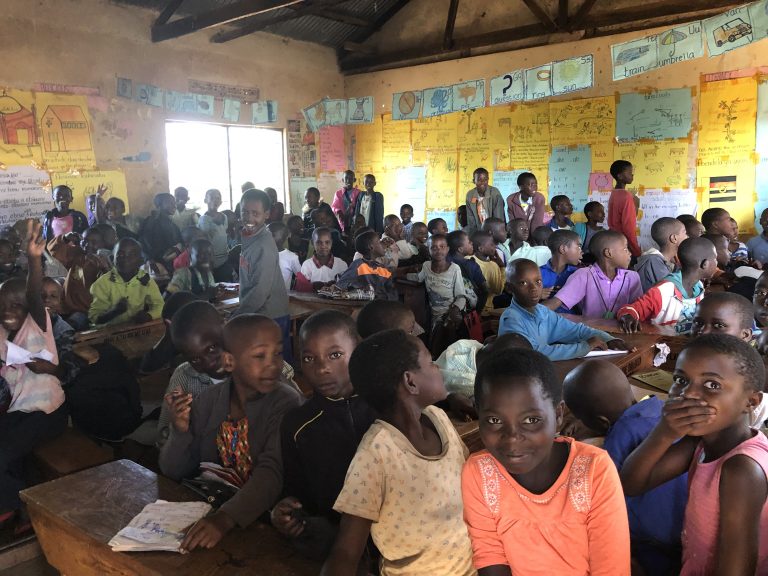
Every Action Counts – The Global Picture
The global population of forcibly displaced people reached 70.8 million in 2019 – the highest level since World War II. This includes almost 26 million refugees and over 41 million Internally Displaced People (IDPs), who often face significant barriers to access education in host countries.
In 2019, according to the UN Refugee Agency, UNHCR, only 63 per cent of refugee children attended primary school (compared to 91 per cent globally) and only 24 per cent of refugees accessed secondary education. COVID-19, climate change, armed conflicts and a trend toward longer periods of displacement and protracted crises are putting even more girls and boys at risk, and derailing global efforts to achieve the Sustainable Development Goals, including SDG4,which focuses on universal and equitable quality education.
While host countries took in large numbers of refugees, they were not always able to accommodate the increased demand for services, and the 26 million refugees around the world face particularly dangerous, life-threatening obstacles in the fight against COVID-19. In a camp in Northwest Syria hosting 1 million people, people face cramped living conditions, little or no healthcare and a lack of access to clean water. In Bangladesh’s Cox’s Bazar, as many as 16,000 people currently live in quarantine zones. Even worse, these multiplying crises that could result in 300,000 people starving every day, cost our economy trillions of dollars, and push millions back into poverty.
Education is part of the solution. Schools and learning centers provide refugee children with meals, they provide them with sanitation facilities, and they provide them with a safe haven to escape the fear and danger of life that they may face in exile. In short, education provides them hope.
Immediate relief is needed. ECW has expanded its education in emergencies COVID-19 response appeal to US$300 million. Much of this funding will directly reach refugee and other displaced children.
To create true transformational change, however, the education system needs to be built back better with integrated long-term approaches that bridge the humanitarian-development nexus, and put refugee children and education first.

